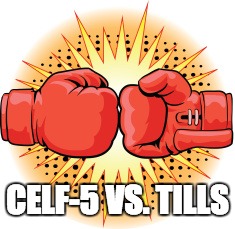
During my recent webinar, Navigating Language Development of Older International Adoptees (April 3, 2025), hosted by Holt International, one of the most frequently asked questions from parents was:
“Why shouldn’t my internationally adopted child attend ESL classes?”
It’s a reasonable question—and one I hear often from well-meaning parents and educators who want to ensure their adopted children receive the support they need. But this question also reveals a widespread misunderstanding about the language needs of post-institutionalized internationally adopted children.
This blog post is my response to that conversation—written for families, educators, and professionals who want to better understand why ESL services are not appropriate for internationally adopted children, and what to do instead.
If you weren’t able to attend the webinar live, the full recording will be available through Holt International’s educational webinar series. You can find it on their website HERE.
Let’s unpack why ESL isn’t the right fit—and what kinds of support internationally adopted children actually need to thrive.
Myth: “My child isn’t fluent in English, so ESL must help.”
Reality: Internationally adopted children are not bilingual learners.
Most ESL programs are designed for children who still use their native language at home and gradually acquire English in school. These kids are developing two languages at once and benefit from strategies that build on both.
But internationally adopted children? They experience something very different.
According to Gindis (2005; 2008), children adopted between ages 4–7 lose their birth language within just a few months of arriving in their new home. They’re immersed in English almost immediately—and their native language is rarely maintained because most adoptive families are monolingual.
So, they’re not truly bilingual. But they’re also not fully fluent in English yet. They’re in a unique in-between state that ESL programs aren’t designed to address.
ESL programs don’t target what IA children actually need
While ESL helps students bridge language barriers tied to cultural and home-language continuity, IA children are dealing with something else entirely: language deprivation and language loss.
Many older adoptees spent years in institutions with:
- Minimal one-on-one interaction
- Low language stimulation
- Unaddressed medical or developmental concerns
This means they’re not just “behind in English”—they often have underlying language delays or disorders that impact comprehension, expression, and even literacy (Scott, Roberts & Glennen, 2011; Desmarais, et al, 2012; Kornilov et al., 2019).
They sound fluent… but can’t keep up academically
A major source of confusion is that many IA kids sound great conversationally. They can talk about their favorite games, pets, or foods. But when it comes to classroom work—reading comprehension, writing essays, understanding abstract language—they start to struggle.
This happens because they develop Communicative Language Fluency (CLF) quickly—but take years to develop Cognitive Language Mastery (CLM), which is necessary for school success (Gindis, 2005).
So even if they “sound fluent,” they may:
- Misunderstand instructions
- Struggle with academic vocabulary
- Fall behind in reading and writing
- Feel overwhelmed and shut down in class
These are not second-language issues. They are language development issues that require specialized intervention.
So what should you do?
Instead of agreeing to an ESL placement, here’s how you can better support your child:
- Get a comprehensive speech-language evaluation—especially if your child had speech or language delays in their birth country, or came from an institutional background.
- Ask about school-based speech services—not ESL. Many IA children qualify under criteria for language disorders rather than language differences.
- Advocate for academic support that targets vocabulary, inferencing, grammar, and literacy.
- Monitor progress over time—some delays won’t show up until years later, especially as school demands increase (Glennen, 2009).
- Be aware of trauma and sensory history—many IA children also have social, emotional, and attentional challenges that impact language.
Bottom line
Your child may not need ESL. But they do need support.
If your internationally adopted child is struggling in school—even if they speak English well—don’t accept a “wait and see” approach. Push for a full language evaluation. Ask for help from a speech-language pathologist who understands adoption, trauma, and language loss. And most of all, trust your instincts.
Because these kids don’t just need English—they need someone who gets the whole picture.
References
- Desmarais, C., Roeber, B. J., Smith, M. E., & Pollak, S. D. (2012). Sentence comprehension in postinstitutionalized school-age children. Journal of Speech, Language, and Hearing Research, 55, 45–54.
- Elleseff, T. (2025, April 3). Navigating language development of older international adoptees [Webinar presentation]. Holt International.
- Gindis, B. (2005). Cognitive, language, and educational issues of children adopted from overseas orphanages. Journal of Cognitive Education and Psychology, 4, 290–315.
- Gindis, B. (2008). Abrupt native language loss in international adoptees. Advance Healthcare Network for Speech/Language Pathologists and Audiologists, 18(51), 5.
- Glennen, S. (2009). Speech and language guidelines for children adopted from abroad at older ages. Topics in Language Disorders, 29(1), 50–64.
- Kornilov, S. A., Zhukova, M. A., Ovchinnikova, I. V., & Grigorenko, E. L. (2019). Language outcomes in adults with a history of institutionalization: Behavioral and neurophysiological characterization. Scientific Reports, 9, 4252.
- Scott, K. A., Roberts, J. A., & Glennen, S. (2011). How well do children who are internationally adopted acquire language? A meta-analysis. Journal of Speech, Language, and Hearing Research, 54(4), 1153–1169.

 In August 2021, the
In August 2021, the  How many parents and professionals have experienced the following scenario? The child in question is
How many parents and professionals have experienced the following scenario? The child in question is  Lately, I’ve been seeing more and more posts on social media asking for testing suggestions for students who exhibit
Lately, I’ve been seeing more and more posts on social media asking for testing suggestions for students who exhibit  It’s early August, and that means that the start of a new school year is just around the corner. It also means that many newly graduated clinical fellows (as well as SLPs switching their settings) will begin their exciting yet slightly terrifying new jobs working for various school systems around the country. Since I was recently interviewing clinical fellows myself in my setting (an outpatient school located in a psychiatric hospital, run by a university), I decided to write this post in order to assist new graduates, and setting-switching professionals by describing what knowledge and skills are desirable to possess when working in the schools.
It’s early August, and that means that the start of a new school year is just around the corner. It also means that many newly graduated clinical fellows (as well as SLPs switching their settings) will begin their exciting yet slightly terrifying new jobs working for various school systems around the country. Since I was recently interviewing clinical fellows myself in my setting (an outpatient school located in a psychiatric hospital, run by a university), I decided to write this post in order to assist new graduates, and setting-switching professionals by describing what knowledge and skills are desirable to possess when working in the schools.  Those of you familiar with my blog, know that a number of my posts take on a form of extended responses to posts and comments on social media which deal with certain questionable speech pathology trends and ongoing issues (e.g., controversial diagnostic labels, questionable recommendations, non-evidence based practices, etc.). So, today, I’d like to talk about sweeping general recommendations as pertaining to literacy interventions.
Those of you familiar with my blog, know that a number of my posts take on a form of extended responses to posts and comments on social media which deal with certain questionable speech pathology trends and ongoing issues (e.g., controversial diagnostic labels, questionable recommendations, non-evidence based practices, etc.). So, today, I’d like to talk about sweeping general recommendations as pertaining to literacy interventions.  On a daily basis I receive emails and messages from concerned parents and professionals, which read along these lines: “My child/student has been diagnosed with: dyslexia, ADHD, APD etc., s/he has been receiving speech, OT, vision, biofeedback, music therapies, etc. but nothing seems to be working.”
On a daily basis I receive emails and messages from concerned parents and professionals, which read along these lines: “My child/student has been diagnosed with: dyslexia, ADHD, APD etc., s/he has been receiving speech, OT, vision, biofeedback, music therapies, etc. but nothing seems to be working.”